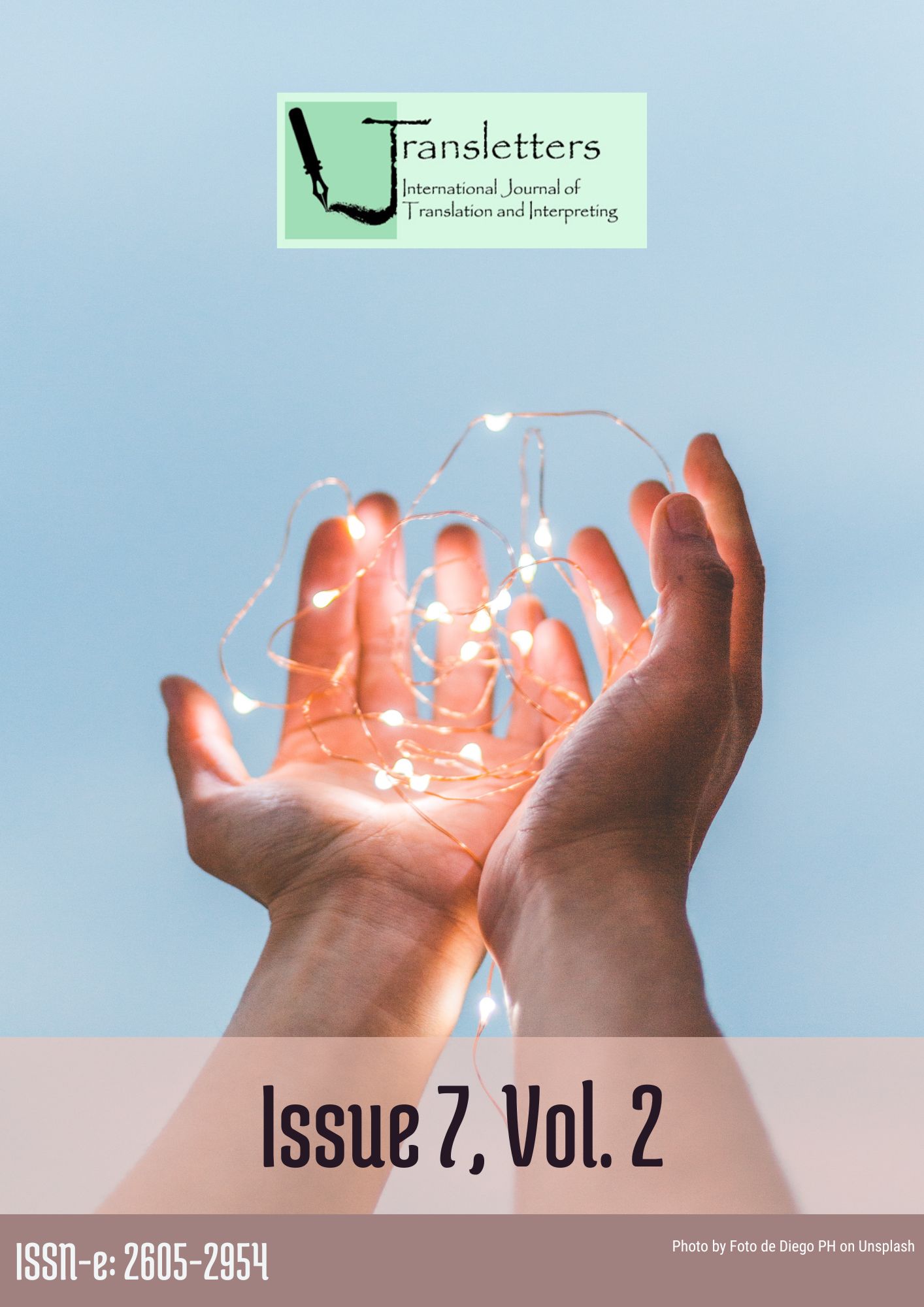1st International Conference on Didactic Audiovisual Translation and Media Accessibility.
Main Article Content
Abstract
The inaugural TRADIT23 conference, organized by the TRADIT (i.e., Traducción Audiovisual Didáctica, in English Didactic Audiovisual Translation) research group and members of the TRADILEX project (i.e. TRADucción audiovisual como recurso DIdáctico en el aprendizaje de Lenguas EXtranjeras), took place on March 23rd and 24th, 2023. Pre-conference workshops were also held on March 22nd. This ground-breaking international event focused on the practical applications of revoicing and subtitling in L2 (i.e. second language) education settings. With a diverse range of topics explored, including language awareness through DAT (i.e., Didactic Audiovisual Translation), didactic media accessibility, videogames in DAT, multimodality and intermediality, accessibility in performing arts and museums, DAT for specific purposes, didactic revoicing, and gender and ethnicity in DAT, the conference attracted 150 participants, including organizers, speakers, both online and onsite attendees, and collaborators, all actively contributing to the discussions.
Downloads
Article Details

This work is licensed under a Creative Commons Attribution-NonCommercial-ShareAlike 4.0 International License.
Suggested policy for journals that offer open access
Authors who publish with this journal agree to the following terms:
1. Authors retain copyright and grant the journal the right of first publication with the work simultaneously licensed under a Creative Commons Attribution License, which allows others to share the work with an acknowledgement of authorship of the work and initial publication in this journal.
2. Authors may enter into additional contractual arrangements for non-exclusive distribution of the published version of the paper in the journal (e.g., submission to an institutional repository), with an acknowledgement of its initial publication in this journal.
3. Authors are allowed and encouraged to publish their work prior to the final version published in this journal once accepted (e.g., in institutional repositories or on their website), as it can lead to productive exchanges, as well as earlier and higher citation of the published work (see The Open Access Effect).

